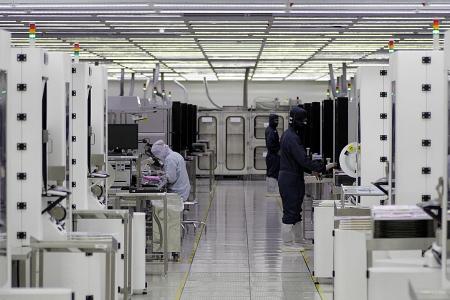S'pore attracts $8.1b in investment commitments
$8.1b this year higher than $5.3b invested in same period last year
Strong economic headwinds and the US-China trade tension have not stopped Singapore from attracting an unexpectedly large amount of investment commitments.
In just the first half of this year, Singapore has attracted $8.1 billion in investment commitments in manufacturing and services.
This is comfortably higher than the $5.3 billion worth of investment commitments it had drawn for the same period last year.
In fact, the figures in the Economic Survey of Singapore, out last week, have already surpassed the lower bound of the Economic Development Board's (EDB) estimates made in February for all of this year.
The EDB forecasts that Singapore would attract between $8 billion and $10 billion in fixed- asset investment commitments this year, in line with previous years.
Last year, the country drew $10.9 billion in investment commitments - a number that looks well within reach.
CIMB economist Song Seng Wun said yesterday: "These are encouraging signs, especially in the technology and chemicals sectors."
He noted that near-term growth concerns, higher operating costs and manpower issues should not deter companies with deep pockets.
That the top foreign investors continue to be the United States and Europe is not surprising, said Mr Song.
"Technology, chemicals and data services are still dominated by American companies, followed by European ones."
Technology company Micron, social media giant Facebook and British home appliance-maker Dyson are just a few of the prominent companies that have set up shop here.
Maybank economist Chua Hak Bin warned that while companies may state intended investment commitments, actual spending could come in much lower.
New fixed-asset investment comes at a crucial time, given that Singapore needs a capital expenditure boost to cushion the export downturn.
"We hope that these commitments materialise into actual capex spending and job creation, as there have been episodes in the past where the two have not been correlated," said Mr Chua.
While manufacturing remains a key pillar of the Singapore economy, Mr Song thinks the services cluster could attract more fixed-asset investments than manufacturing by the end of this year.
"The need for data, scientists and research and development will create jobs," he said.
Get The New Paper on your phone with the free TNP app. Download from the Apple App Store or Google Play Store now


